What connects Madeira, Azores and Canaries with the Gulf of Guinea countries? The region is connected by the powerful Mid-Atlantic Ocean current, which not only supports a rich marine biodiversity but also faces environmental challenges such as plastic pollution, waste dumping, and sewage deposits.
The power of Interreg Madera-Azores-Canarias Cooperation Programme - unlocking potential of Senegalese partners
- 20 December 2024
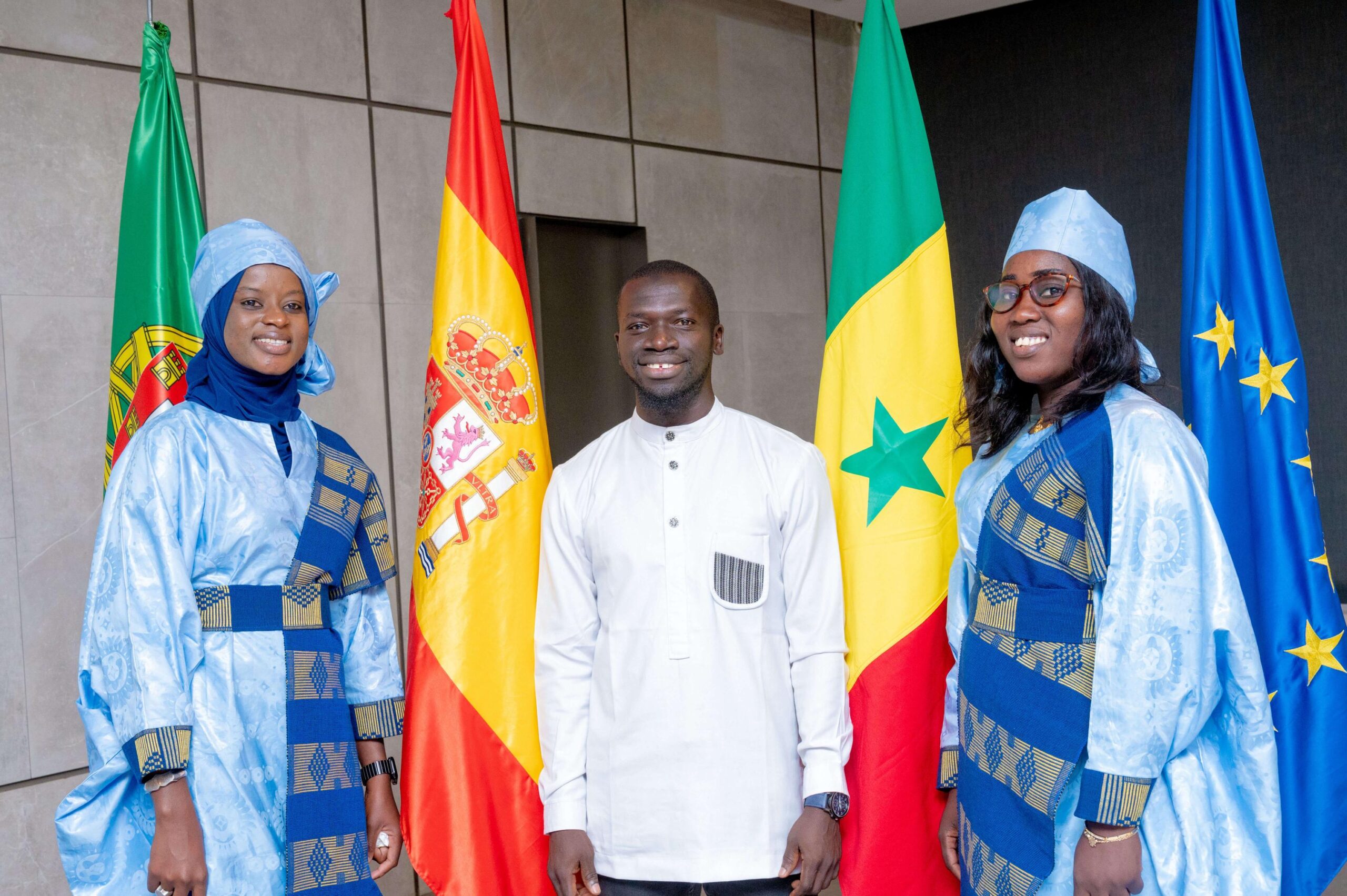
The European Union's Interreg Madeira-Azores-Canarias 2021-2027 programme allows beneficiaries from those three Archipelagos to address these challenges by cooperating between themselves but also with their neighbouring West African countries like Senegal, Cape Verde, Mauritania, Ghana, The Gambia, Côte d’Ivoire and São Tomé and Príncipe.
On 4 December 2024, a special event was held in Dakar: the 1st Interreg Madeira-Azores-Canarias 2021-2027 call, with the participation of Senegalese partners.
Senegalese project partners, along with their EU counterparts, were invited to the event to present their cooperation ideas. Eventually, 14 cooperation projects were approved for EU co-financing by the members of the Monitoring Committee under the Interreg Madeira-Azores-Canarias 2021-2027 programme. These projects were:
- IDIWATER Project – Through small seawater desalination units powered by photovoltaics, this project aims to provide sustainable solutions to remote areas, offer training in desalination management, and prepare an inter-African master's degree in water management based on the experiences of the Canary Islands and Madeira.
- SANIFISH Project – Focused on combating contamination in fisheries in the Gulf of Guinea, improving the value chain, and enhancing marketing efforts.
- Red Beam Project – Promoting technological innovation to create an oceanographic hub, particularly for the sustainable management of aquatic farms.
- INNOVABLUE Project – Targeting sustainable management of ships crossing the heavily contaminated Gulf, this project includes training companies in boat cleaning.
- AFRICANTECH Project – Developing digital technology for SMEs through mapping digital businesses, diagnosing needs, providing training, and promoting online sales.
- MICROCLI-MAC Project – Focused on managing microclimates, which strongly influence the Gulf of Guinea, this project will establish a joint forecasting system and create alert messages to address extreme weather phenomena.
- WACCID Project – Aims to provide specific electricity networks for coastal areas not connected to the general grid, while raising awareness among consumers about smart energy use.
- NATUR-EXT Project – This project addresses wastewater management in the Gulf of Guinea, with a focus on recovering extracted biomass.
- ALSEMAC Project – Enhancing food security by addressing contaminated water used in agriculture, which also discharges into the Gulf of Guinea.
- REDCENTROS Project – Focused on recovering natural areas critical to biodiversity, this initiative includes waste recovery and environmental education actions to reduce pollution in the Gulf of Guinea.
- HOPE Project – Establishing marine sanctuaries along the Gulf, creating a migration corridor for cetaceans, turtles, and fish, and developing the first transnational marine hospital based on South African experiences. It also includes an information campaign on the dangers of plastic use for marine biodiversity.
- COMPASS Project – Preventing migration tragedies by promoting circular migration, providing professional training, raising awareness among populations, and creating a regional migration observatory.
- SEIMLAB Project – Raising awareness upstream and downstream about migration (Canary Islands), promoting social inclusion for young unaccompanied migrants, and fostering collaboration with migrant groups.
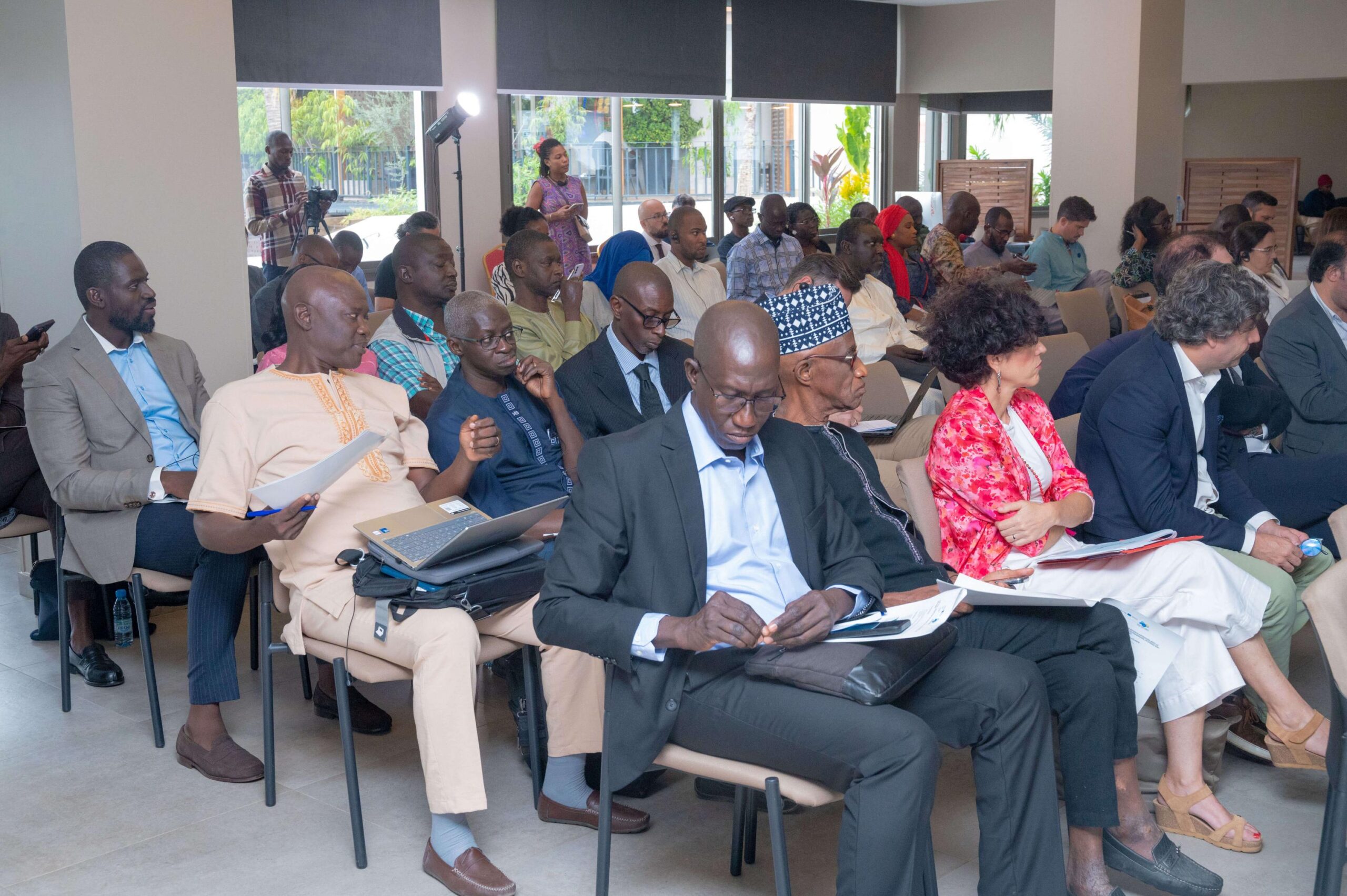
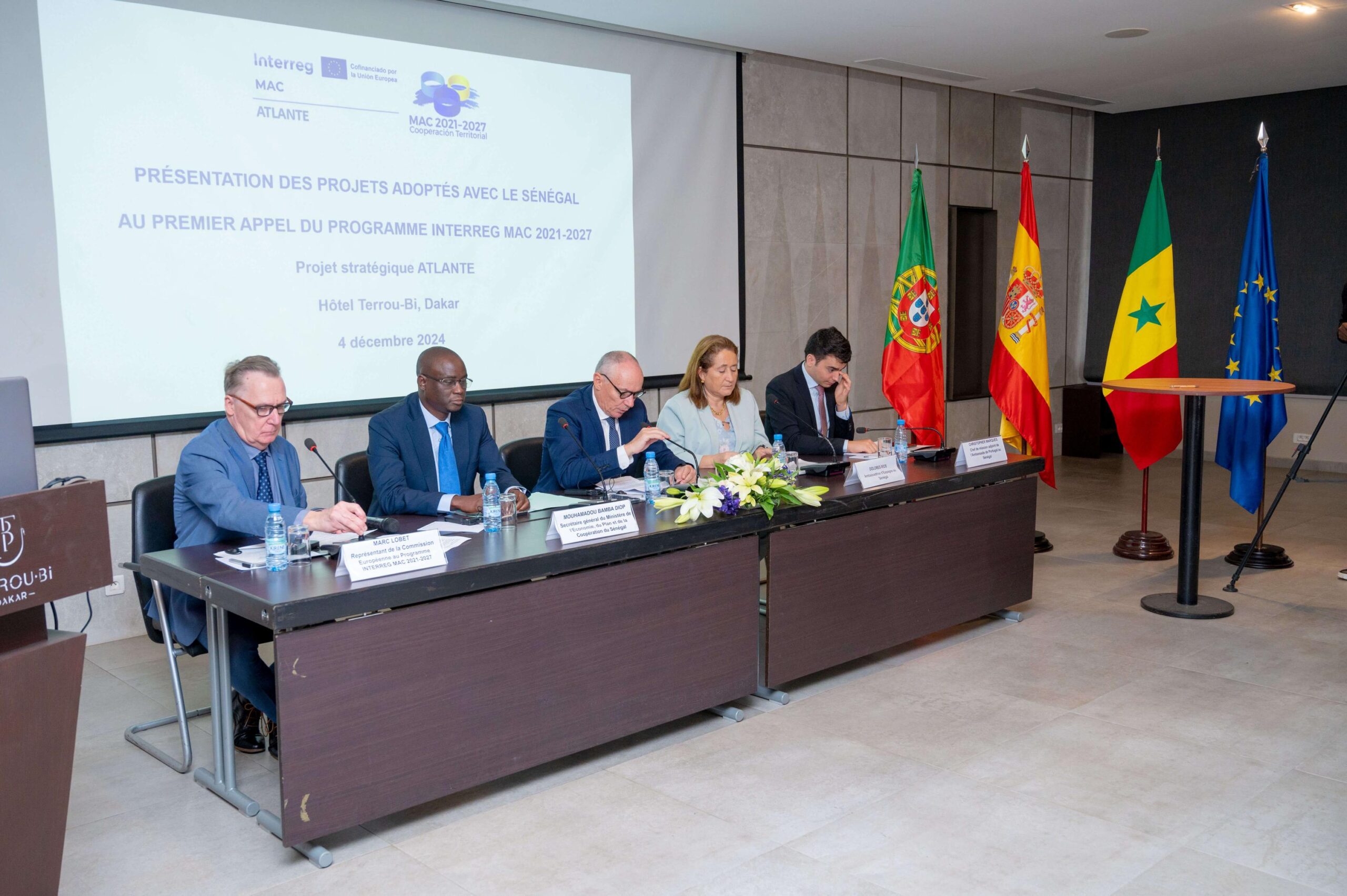
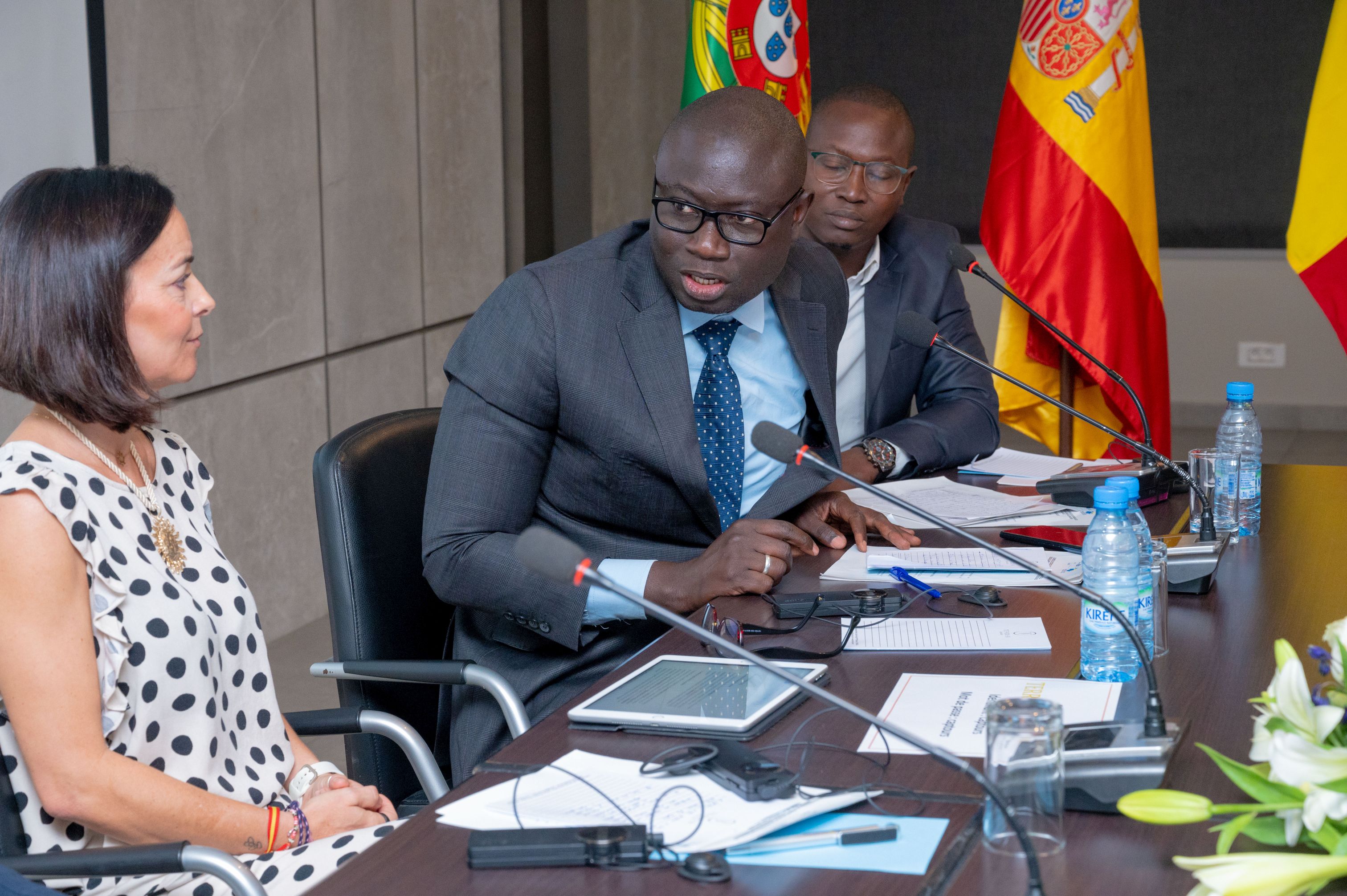
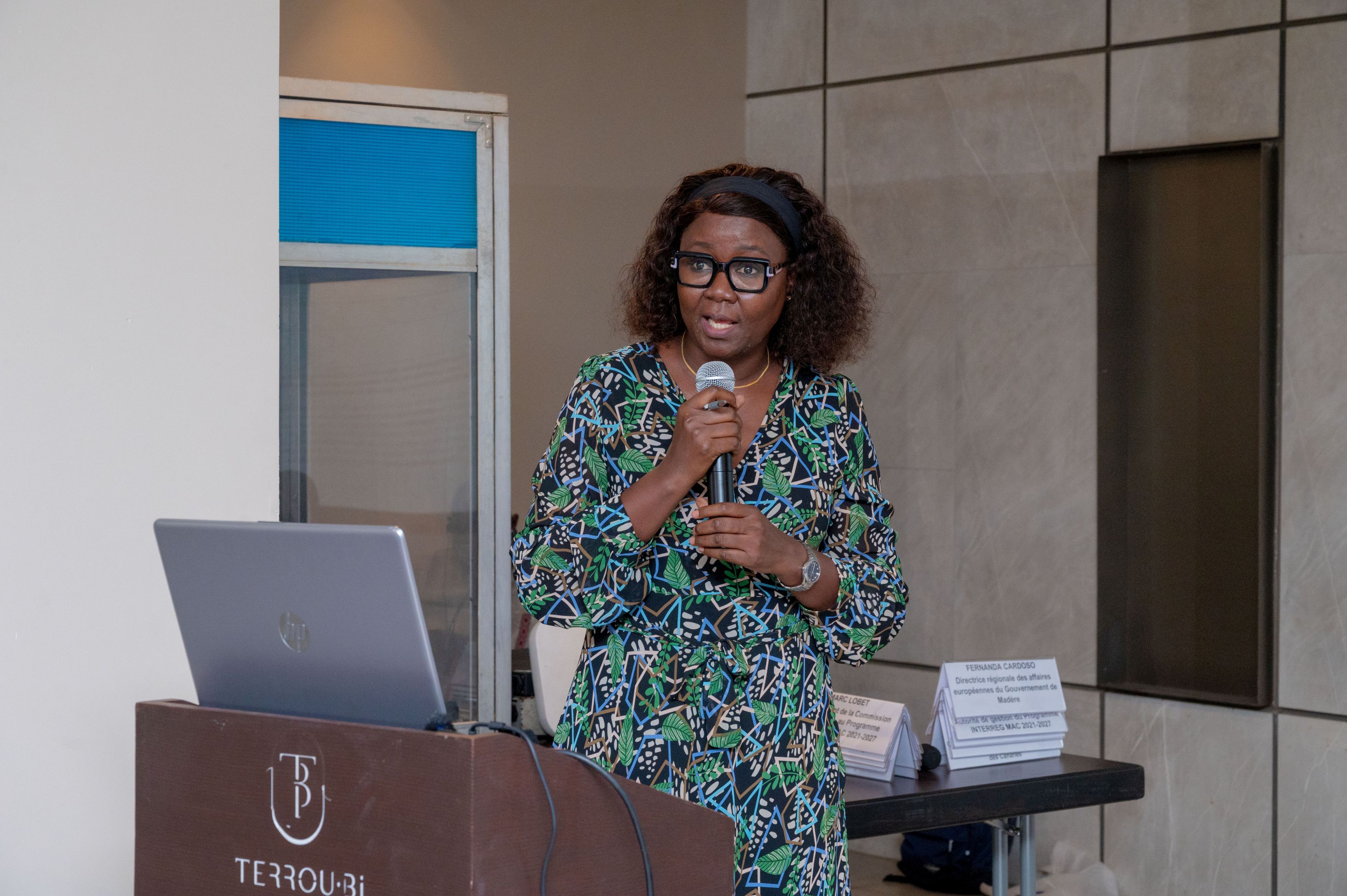
The projects approved for Cohesion Policy co-financing reflect the diversity and ambition of the Interreg Madeira-Azores-Canarias 2021-2027 programme. Their benefits extend beyond individual initiatives. From promoting the blue economy and food security to addressing migration challenges, these collaborations highlight the programme’s profound impact.
Mr. Mouhamadou Bamba Diop, Secretary General of the Ministry of Economy, Planning, and Cooperation of Senegal, noted that the Interreg Madeira-Azores-Canarias 2021-2027 programme is a key component of Senegal's strategic plan for economic development and cooperation with the EU.
The participation of high-level officials from the European Commission, the Spanish and Portuguese Embassies, and the Canary Islands Government demonstrated the commitment of all parties to work together in addressing common challenges and highlighting the importance of territorial cooperation and the exchange of knowledge and experience between European and African partners.
